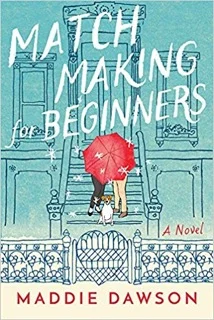I do believe most everyone enjoys a good love story, but I did not set out to write that as the mainstay of the book. It evolved, much as our journey evolved. To not share that part of our relationship with others would have been to leave out, I believe, the most uplifting part of our story.
There are so many out there caring for loved ones; spouses, parents, children, friends. The job is difficult, painful and can cause rifts in relationships. I think it is important to show them that, with the right attitude (I’m sorry if that sounds pedantic, and Pollyannaish) feelings of remorse can be turned into a stronger love as, together, caregiver and patient work through their trials - with an attitude of understand and caring.
The quote that stays with us comes from a plaque that hangs on the wall at Spaulding Rehabilitation Hospital in Boston:
“You get bitter or you get better. It’s that simple. Take what has been dealt to you and allow it to make you a stronger person, or allow it to tear you down. The choice is yours. Choose wisely.”
Joe and I chose to become stronger people – individually and as a couple and a “team.” I’ve since had many people share with me that their caregiver journey has created a stronger loving bond between them and their patient.
Our love story is real – there was no way I could not share it.
In your email section of the book, your tone is very positive, was there a point where you felt hopeless or angry? How do you handle those kinds of feelings when your closest friend and confidante can’t help you with them?
I made a point of adding something positive to each email I had sent out. I think, retrospectively, I needed to do that to bolster my own torn soul. Of course, I wanted those who cared to find something upbeat in my words. I knew they were with Joe and me in spirit and it needed to share it all – the pain and the positive.
As for me feeling hopeless and angry; of course I did. There were days when I had to leave Joe’s side so I could sit in the caregiver lounge and cry. Or call a friend and rant. Or – forgive me for this admission – take a handful of Ativan in order to continue on. (On those days I had someone driving me home, or I was staying in Joe’s room overnight).
My closest friends and confidantes were able to help me – I remember sitting in my living room one morning, absolutely shattered and, after texting two extremely close friends, finding them coming to my home to allow me to babble and blubber on; to cry and scream; and they listened and they held me and I was able to pull myself together and get to the hospital.
But I could not live in the negative and somehow found a way to continue on with hope and optimism. It wasn’t easy. But it was necessary to do so, or I would have not been able to continue caring for Joe. Or myself.
What are 3 pieces of advice you could give to someone who has just been thrown into the caregiver role?
- Educate yourself about your role: learn about the illness which has struck your loved one; learn about the “cures” and side effects; learn to talk with the medical staff and become a part of their team. Take what I call, a course in Hospital 101. You cannot be a bystander and wear blinders. You’re learning much under fire, but it will help you help your loved one immeasurably.
- Recognize that you must MUST care for yourself. I did not and the result was a woman (me) who was emotionally and physically exhausted, and on the brink of not being capable of caring for Joe in any capacity. Seek counseling and guidance. Listen to people who tell you to take care of YOU. They are right!
- I love Joseph Campbell’s quote:
“We must let go of the life we have planned, so as to accept the one that is waiting for us.”
The life Joe and I had planned was wonderful for as long as it lasted. Now we live another life – but still with each other – and we are thankful for what we once had, and grateful for the life we now have together.
I hear so many caregivers bemoaning the new life that has been handed to them; they want their old life back. But, this, now, is their life. And, as Campbell says, it must be accepted. That is also the Tao – here you are, your path has been altered, find your unique strengths and create a new life.





















































